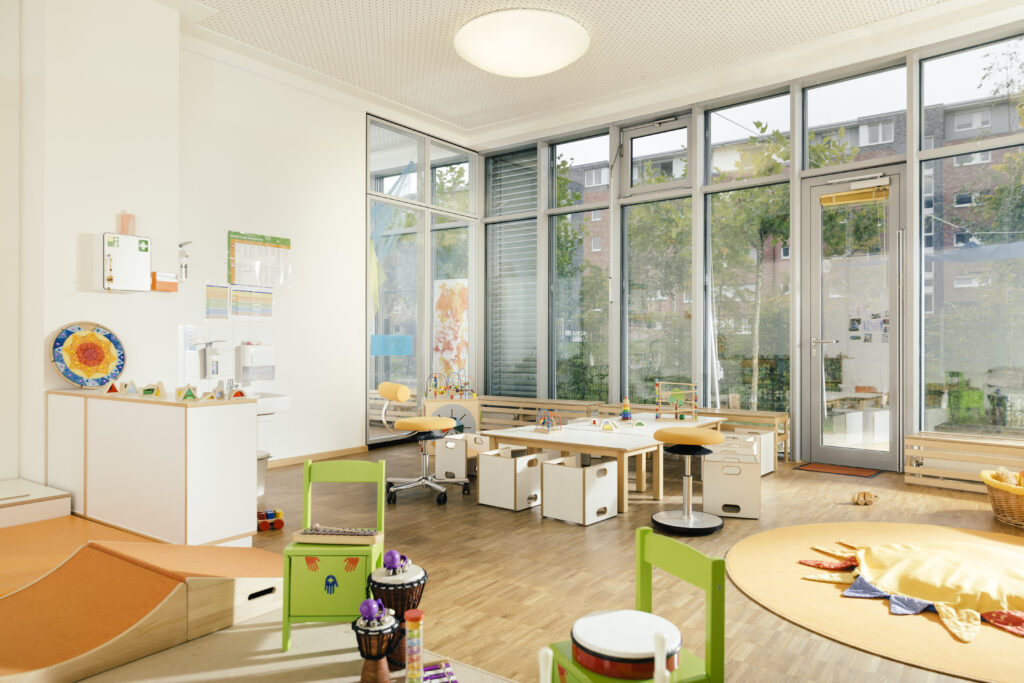Children's Services
Ultimate Guide -
Choosing The Best Childcare

What are the best nursery schools in the UK?

There is no single definitive list of the best nursery schools in the UK, as quality varies by location and personal preferences. However, parents can identify top-rated nurseries by checking Ofsted inspection reports, speaking with other parents, and reviewing awards or accreditations. Outstanding-rated nurseries consistently demonstrate high standards in education, care, and safety.

How do I know if a daycare centre is high quality?
A high-quality daycare centre will have a strong Ofsted rating, qualified staff, and a safe, stimulating environment. Parents should observe how staff engage with children, check staff-to-child ratios, and ask about the curriculum and daily routines. Good communication with parents and a welcoming atmosphere are also positive signs.






What questions should I ask when visiting a nursery?
When visiting a nursery, parents should ask about opening hours, fees, staff qualifications, safety policies, and how the nursery manages routines such as meals and naps. It is also useful to ask how the nursery tracks child development, handles illness, and communicates with parents. Observing staff interaction with children provides further insight.
How do I compare nurseries near me?
To compare nurseries, parents can use Ofsted reports, childcare directories, and online reviews. Visiting multiple nurseries allows direct comparison of facilities, staff, and atmosphere. Key factors to consider include location, cost, availability of places, staff turnover, and how the nursery’s values align with family expectations.


What are the signs of a good babysitting service?
A good babysitting service will have positive reviews, clear safety checks such as DBS certificates, and a transparent booking process. Sitters should be punctual, reliable, and willing to provide references. Agencies or online platforms that vet their babysitters offer added reassurance to parents.






How do I choose between nursery and home daycare?
Choosing between nursery and home daycare depends on the child’s personality, the family’s schedule, and budget. Nurseries offer structured routines, social interaction, and a curriculum-based approach, while home daycare (childminding) provides smaller group sizes and a more homely environment. Parents should consider what setting will best support their child’s comfort and development.
What are the best childcare websites for parents?
Popular childcare websites in the UK include childcare.co.uk, which lists nurseries, childminders, nannies, and babysitters. The government’s official childcare search tools and local authority directories are also reliable sources. Many of these websites allow parents to filter by location, price, and type of care while viewing reviews and Ofsted ratings.






How do I check reviews of local nurseries?
Parents can check reviews on childcare websites, Google, and parenting forums. Word of mouth is also valuable, so speaking to other parents in the area can provide useful insights. Combining reviews with Ofsted inspection reports offers a fuller picture of a nursery’s strengths and weaknesses.
What’s the best childcare option for working parents?
The best childcare option for working parents depends on working hours, location, and budget. Nurseries and day care centres with extended hours suit many working families. Childminders can provide more flexible arrangements, while nannies may be ideal for parents needing childcare outside standard hours. Many parents also combine childcare options to cover varying schedules.

How do I choose the right childcare for my budget?
Parents should begin by comparing fees at local nurseries, day care centres, and childminders. They should also check eligibility for government-funded hours, tax-free childcare, or Universal Credit childcare support. Once costs are clear, families can weigh price against quality, location, and suitability for their child’s needs. Choosing the right childcare often involves balancing affordability with reliability and developmental benefits.

